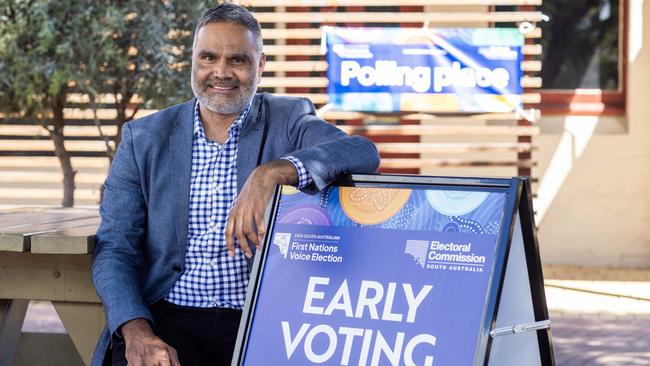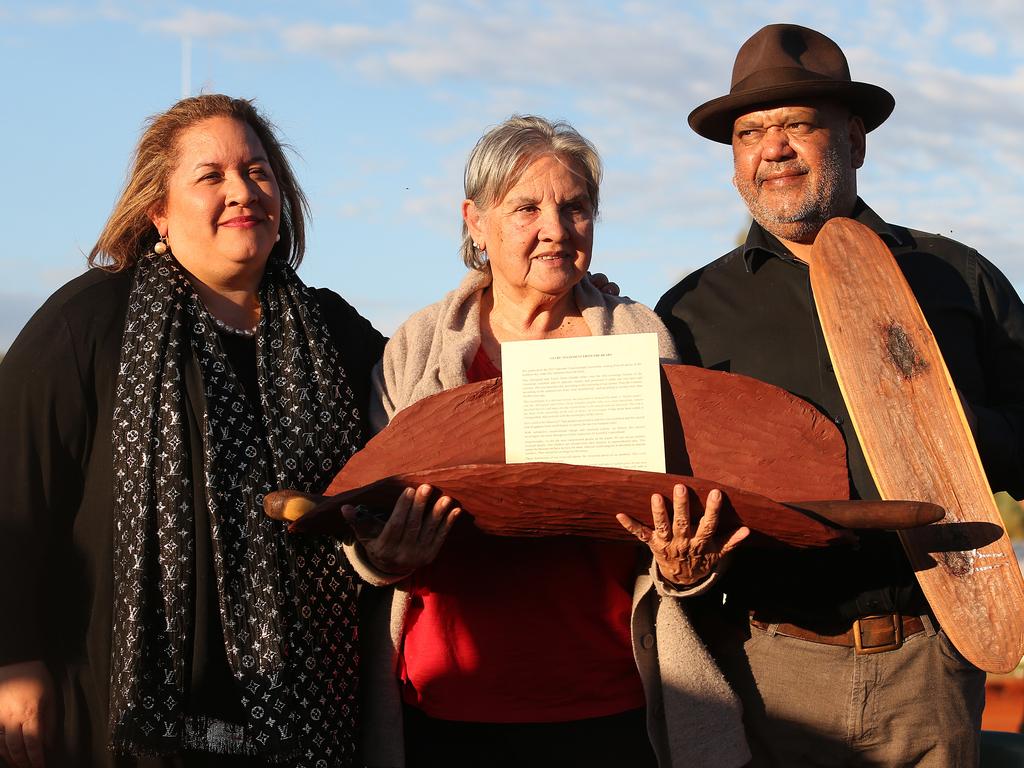Eligibility row casts cloud over Indigenous voice vote
A dispute has erupted over some Indigenous candidates for SA’s Indigenous voice to parliament as Aboriginal people begin early voting for the legislated advisory body.

A dispute has erupted over the eligibility of some Indigenous candidates for South Australia’s Indigenous voice to parliament as Aboriginal people begin early voting for the legislated advisory body.
Senior Mirnang man Robert Lawrie is urging the Malinauskas government to pause elections for the state Indigenous voice until concerns are resolved about who is eligible to sit on the voice.
Early voting begins Wednesday for 116 candidates in six regions.
The voice is being established as “a direct line of communication between Aboriginal and Torres Strait Islander communities around South Australia and key decision-makers, including state parliament, the South Australian government, and heads of government agencies”.
After months of consultations with communities around the state, it was decided that any Indigenous person could stand for election in any region provided their ancestral connections to the region are proven or they live there.
However, Mr Lawrie is among elders who believe this has the potential to give decision-making authority to dissidents and renegades instead of elders and traditional owners. He says there is a long-running dispute among some Mirning people about who the traditional owners of their lands and seas are.
In a letter to South Australian Aboriginal Affairs Minister Kyam Maher, Mr Lawrie says the state legislation for the voice is so vague “that it has the potential to allow for opportunistic people to wrongly claim/assert being a traditional owner of other people’s country, in order to claim to be recognised as being able to speak on behalf of those people and their country, when they do not have the right”.
“This practice is contrary to and is against traditional Aboriginal law and custom,” Mr Lawrie writes in his letter to Mr Maher, obtained by The Australian.
Mr Lawrie said the final list of nominees for the SA voice includes at least one and possibly more candidates who want to represent a region and speak on behalf of a community that does not contain that person’s traditional and native title language group.
“This behaviour has the potential to deprive a legitimate owner to be a nominee of their region. Such persons nominating to represent outside their own country/region should raise an investigation into the nomination process,” Mr Lawrie said. “No language group should be speaking for another language group’s country.
“Doing so would be against Aboriginal traditional customs and practice.
“Examples of wrongly speaking for other people’s country already exist as a result of alleged fraudulent or corrupt native title claims in South Australia.
“Larger language groups are always outvoting smaller language groups.
“The voice will potentially give rise to similar situations.”
A spokesman for the SA government told The Australian: “We understand that there are some Aboriginal people are who dissatisfied with native title determinations in South Australia. The appropriate body to consider these matters is the Federal Court of Australia, which decides on native title determinations.
“The South Australian First Nations voice allows for every Aboriginal and Torres Strait Islander person on the South Australian electoral roll to stand for and vote in elections for the voice.
“The First Nations Voice Act makes it abundantly clear in section 7 that nothing in the legislation limits or otherwise affects the functions of any other First Nations person or bodies under any other Act or law, including native title.”







To join the conversation, please log in. Don't have an account? Register
Join the conversation, you are commenting as Logout